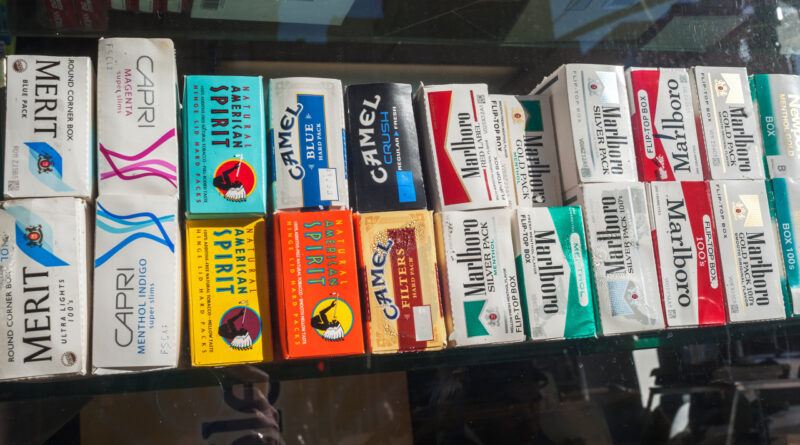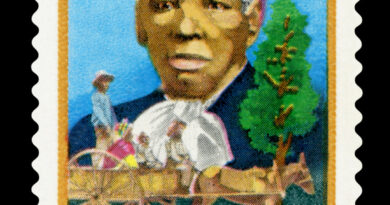Banning Menthol Cigarettes: California-Based Advocacy Group Joins Suit Against Federal Govt.
Edward Henderson | California Black Media
A California based non-governmental organization, The African American Tobacco Control Leadership Council (AATCLC), has joined two other public health advocacy groups in a second lawsuit against the U.S. Food and Drug Administration (FDA) for the agency’s inaction on issuing a final rule banning menthol cigarettes.
The suit, filed by Christopher Leung of Leung Law, PLLC on behalf of the AATCLC, Action on Smoking and Health (ASH) and the National Medical Association (NMA) comes more than seven months after the FDA’s established date for finalizing a new rule against menthol cigarettes.
“We are a group of Californians, although we have expanded now. We were formed in 2008 to inform and direct the activities of commercial tobacco control and prevention as they affect African Americans and African immigrants in this country,” said Carol McGruder, co-chair of the AATCLC.
McGruder was speaking during a press briefing April 2 organized to announce the lawsuit. with representatives from the ASH, NMA and other organizations.
“Menthol cigarettes have had a devastating and disproportionate impact on the health of Black Americans,” said Yolanda Lawson, President of the NMA. “Smoking related diseases are the number one cause of death in the Black community.”
The lawsuit also follows the FDA’s 15-year delay in creating national policy that would ban cigarettes made with compound menthol, a minty substance that cigarette makers infuse into their tobacco products, making them more addictive and harmful.
The initial complaint sought to compel the FDA to act on its earlier conclusions that removing menthol cigarettes from the marketplace would benefit public health. The lawsuit specifically asked the Court to compel the FDA’s determination on whether to add menthol to the list of prohibited characterizing flavors – a determination that the FDA delayed making for over 10 years. The joint lawsuit followed the 2013 Citizen Petition from the Public Health Law Center, which called on the FDA to prohibit the sale of menthol cigarettes.
“We already know that tobacco is a critical public health issue that remains the leading cause of preventable death and disease,” said Dr. Valerie Yerger founding member of the AATCLC said in a virtual press conference. “But apparently we need to keep beating the drum about how Black Americans in particular bear the biggest burden, and it doesn’t even need to be that way.”
Despite significant reductions in overall smoking rates in the US, smoking among poor, less educated and marginalized groups remains high. Every year, 45,000 Black Americans prematurely die from tobacco-caused diseases. An estimated 85% of them smoked menthol cigarettes.
“This disproportionate use of menthol cigarettes among Black Americans is not a coincidence,” Dr. Yerger continued. “I was one of the first tobacco documents researchers out of UCSF who exposed the tobacco industry’s systematic, predatory marketing schemes to dump highly concentrated menthol cigarette marketing into urban inner-city areas. The tobacco industry’s pervasive presence in these neighborhoods, along with its powerful corporate influences and building relationships with some Black organizations and their leaders have contributed to the racialized geography of today’s tobacco-related health disparities.”
In 2011, the FDA’s own scientific advisory committee concluded that the “Removal of menthol cigarettes from the marketplace would benefit public health in the United States.”
If the sale of menthol-flavored cigarettes is indeed banned, the FDA projects a 15.1% drop in smoking within 40 years, which would help save between 324,000 to 654,000 lives. The agency also projects the ban would stop between 92,000 and 238,000 smoking-related deaths among African Americans—that’s up to 6,000 Black lives saved each year. The projected number of smokers who would quit due to the ban is almost 200,000 African American smokers.
As a result of the Plaintiffs’ first lawsuit, the FDA made the landmark determination to add menthol to the list of banned characterizing flavors in cigarettes. To begin that rulemaking process, the FDA issued a Notice of Proposed Rulemaking to ban the sale of menthol cigarettes in the marketplace. Given that success, the Plaintiffs voluntarily dismissed their initial lawsuit.
Today, three years later, the FDA has yet to take the final step to formally promulgate and publish the proposed rule. After setting an initial date of August 2023 to issue this rule, the FDA has delayed this rule.
“It’s particularly disappointing given that the FDA has an obligation under the Tobacco Control Act to protect the health of all Americans,” said Christopher Leung, lead counsel involved with the suit.
“The Biden administration has certainly emphasized the need for health equity and to addressing the harms to particular members of society who are bearing the brunt of the tobacco company’s efforts. So, our lawsuit here is asking the court for help in compelling the FDA to issue a final rule consistent with the Tobacco Control Act and the Administrative Procedure Act.
On the contrary, tobacco-aligned groups in the past have argued that banning menthol cigarettes would be impact federal and state budgets with the loss of nearly $6.6 billion in cigarette sales taxes. Menthol cigarettes account for over one-third of the U.S. cigarette market.
Other arguments from tobacco-backed groups include unintended consequences of a ban such as increased policing in Black and Brown communities due to contraband cigarettes. However, health advocates have dismissed this claim stating the ban would apply to companies that make or sell menthol cigarettes, not individual smokers.
By law, the United States has two months to respond to the lawsuit. The feds can respond to it or file a motion to dismiss.
If the suit is successful, the FDA would have 90 days to make a final ruling.




